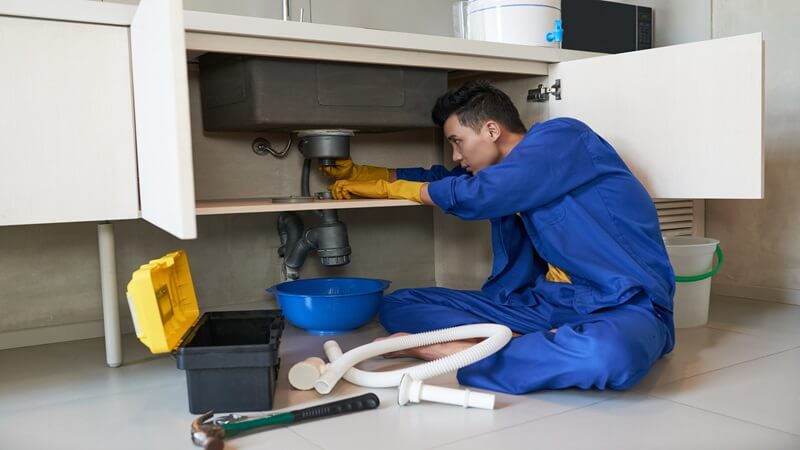A burst pipe is one of the most stressful plumbing emergencies a homeowner can face. It can cause extensive water damage in a matter of minutes, leading to costly repairs and potential health hazards like mold. While it’s easy to panic in such a situation, knowing exactly what to do can minimize the damage and help you respond effectively. Acting quickly—and calling a professional plumber—can make all the difference.
Step 1: Shut Off the Main Water Supply
The very first thing you should do when a pipe bursts is to shut off your home’s main water valve. This stops the flow of water and prevents further flooding. In many homes, it’s near the water meter or where the main water line enters the house. Turning it off immediately can save you thousands in water damage.
If the burst pipe is connected to a specific appliance, like a washing machine or water heater, turning off the valve to that specific appliance may also help, but it’s safer to shut off the main supply first.
Step 2: Turn Off Electricity in Affected Areas
If water from the burst pipe is near electrical outlets, appliances, or your breaker box, turn off the electricity to those areas immediately. Water and electricity are a dangerous combination. Do not attempt to step into standing water if there’s any chance of an electrical current present. Safety should always come first. If you’re unsure, wait for a professional plumber or electrician to inspect the area.
Step 3: Drain the Remaining Water
Once the water supply is turned off, you should drain the remaining water from your plumbing system. Turn on all cold water taps, including those in sinks, bathtubs, and showers, and let them run until they’re empty. This helps relieve any pressure left in the system and prevents additional leaks.
Step 4: Locate the Burst Pipe
If it’s safe, try to locate the source of the leak. This can help you understand the severity of the problem and provide useful information to the plumber. Look for signs such as bulging ceilings, wet drywall, or puddles forming in unusual areas. In colder climates, frozen pipes that have cracked are often the culprits.
Avoid trying to cut into walls or floors to find the pipe unless you are experienced. It’s best to leave any invasive repairs to a licensed plumber.
Step 5: Call a Plumber Immediately
After taking initial emergency steps, the next move is to call a licensed plumber as soon as possible. A plumber will assess the damage, identify the cause, and perform the necessary repairs safely and efficiently. Whether it’s a small crack or a fully ruptured pipe, a professional plumber has the right tools and knowledge to fix the issue and check for other vulnerabilities in your plumbing system.
Delaying this call can result in more damage, especially if there are hidden leaks or structural water damage.
Step 6: Begin Water Cleanup
While waiting for the plumber, start cleaning up as much water as possible. Use mops, towels, or a wet/dry vacuum to remove standing water. This helps minimize damage to floors, walls, and furniture. If the burst happened near carpeted areas, act fast—wet carpet can quickly develop mold and bacteria.
Open windows, turn on fans, and use dehumidifiers to dry out the space. Proper drying is essential to prevent long-term issues like mold growth and wood rot.
Step 7: Document the Damage
Take photos and videos of the affected areas, including furniture, floors, ceilings, and any visible damage to pipes or walls. This documentation is useful when filing a home insurance claim. Many policies cover damage caused by burst pipes, especially if it wasn’t due to homeowner neglect.
Keep all receipts for emergency plumbing services, replacement parts, and any repairs. Your plumber can also provide a detailed report, which your insurance company may request.
Preventing Future Pipe Bursts
Once the immediate emergency is resolved, talk to your plumber about how to prevent future pipe bursts. Some preventative steps include:
- Insulating exposed pipes during winter
- Regular plumbing inspections
- Replacing old or corroded pipes
- Installing pressure-reducing valves
- Draining outdoor hoses before freezing temperatures
A skilled plumber can evaluate your system and recommend upgrades to protect your home from future disasters.
Summary
In conclusion, a burst pipe is a serious emergency, but knowing how to react can limit the damage and help you recover quickly. The most important steps are turning off the water supply, ensuring safety, and contacting a professional plumber without delay. Once the situation is under control, working with your plumber to assess your system and take preventative measures will give you peace of mind for the future.
